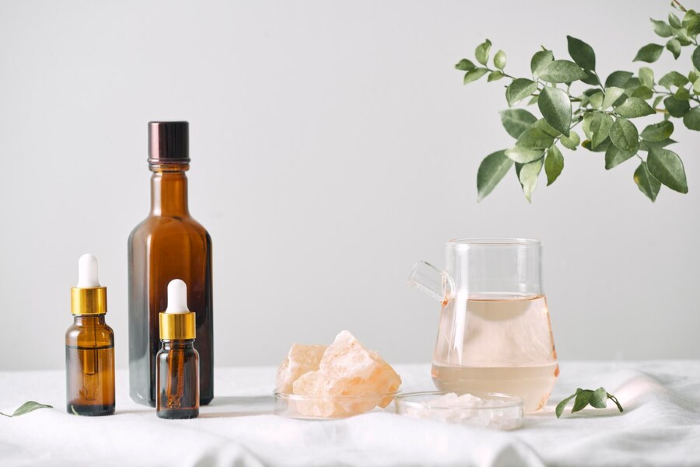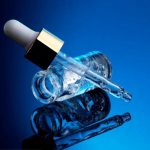Introduction to the Ingredient
Alcohol Denatured: Skincare’s Sassy Sidekick or Sneaky Saboteur?
Hey there, skincare aficionados! Today, let’s chat about everyone’s favorite controversial character in the skincare realm: alcohol denatured. You’ve probably heard whispers about it in the beauty aisle, but what’s the real deal behind this enigmatic ingredient? Strap in, because we’re about to spill the scientific tea on alcohol denatured and its role in your skincare routine.
First things first, what exactly is alcohol denatured? Well, it’s not your fancy cocktail mixer, that’s for sure! Alcohol denatured, also known as denatured alcohol or SD alcohol, is a common ingredient found in skincare formulations. It is a type of ethanol that undergoes a process of denaturation, rendering it unsuitable for consumption. In skincare, it serves various purposes, contributing to the formulation and efficacy of many beauty products. Alcohol denatured is essentially ethanol (yes, the same stuff in your happy hour drinks) that’s been jazzed up with a dash of additives to render it undrinkable. Talk about a buzzkill!
Now, you might be wondering, why on earth is alcohol denatured crashing the skincare party? Well, it’s often invited as a solvent, helping to dissolve other ingredients and create those oh-so-smooth textures in your lotions and potions. But here’s where the drama begins…
While alcohol denatured might give your skincare products that luxurious, lightweight feel, it also has a dark side. Brace yourselves, folks, because alcohol denatured can be as drying as that last-minute cancellation text from your BFF.
Picture this: you slather on your favorite moisturizer, only to find your skin feeling drier than the Sahara Desert in minutes. That’s right, alcohol denatured has a knack for stripping away your skin’s natural oils faster than you can say, “Pass me the hydrating serum, please!”
But wait, there’s more! Alcohol denatured isn’t just a moisture-zapping villain; it’s also been known to crash the sensitive skin party uninvited. For those of you with delicate dermises, alcohol denatured can be as irritating as that one person who won’t stop texting you after midnight.
And let’s not forget about the acne-prone among us. While alcohol denatured might promise to banish those pesky pimples, it can actually throw an acne party of its own by aggravating existing breakouts and inviting their friends along for the ride. Talk about a skincare disaster waiting to happen!
But hey, before you toss out every product with alcohol denatured listed on the label, let’s not write it off completely. Like any character in a skincare saga, alcohol denatured has its moments. It can act as a preservative, keeping your favorite potions shelf-stable for longer than that avocado you forgot about in the fridge.
And believe it or not, alcohol denatured isn’t always the villain of the story. In certain formulations, it can actually enhance the absorption of other skincare superheroes, ensuring they penetrate deeper into your skin and work their magic from within.
How Does it Work?
Alcohol denatured primarily functions as a solvent and preservative in skincare products. Its ability to dissolve various ingredients makes it a popular choice for creating stable formulations. Additionally, it aids in quick product absorption, providing a lightweight feel on the skin.
Key Benefits
- Effective Solvent: Alcohol denatured efficiently dissolves both water-soluble and oil-soluble ingredients, contributing to the overall stability of skincare formulations.
- Preservative Properties: Due to its antimicrobial properties, alcohol denatured helps extend the shelf life of skincare products by preventing the growth of bacteria and fungi.
- Quick Absorption: The fast-evaporating nature of alcohol denatured allows skincare products to be absorbed rapidly into the skin, leaving a smooth and non-greasy finish.
Usage in Beauty Products
Alcohol denatured is commonly used in a variety of beauty products, including toners, astringents, and acne treatments. Its presence in these formulations helps maintain product integrity, enhance texture, and improve the efficacy of active ingredients.
Safety and Precautions
While alcohol denatured has its merits, it is not without controversy. High concentrations can be drying and irritating to the skin, potentially disrupting the skin barrier. Individuals with sensitive or dry skin should exercise caution and opt for products with lower concentrations or alternative ingredients.
Compatibility with Other Ingredients
Alcohol denatured may not be suitable for all skin types, especially when combined with certain ingredients. It is advised to avoid formulations that contain high percentages of alcohol denatured along with potentially irritating ingredients like retinoids or acids to prevent excessive dryness or irritation.
Scientific and Research Findings
Scientific studies on the effects of alcohol denatured in skincare are mixed. While it is acknowledged for its efficacy as a solvent and preservative, concerns exist regarding its potential to strip the skin of natural oils, leading to dryness. More research is needed to determine its long-term impact on skin health.
Common Variants or Derivatives
Denatured alcohol comes in various formulations, with common variants including ethyl alcohol, isopropyl alcohol, and denatonium benzoate. Each variant serves a specific purpose in skincare formulations, contributing to texture, stability, and antimicrobial properties.
Considerations When Using the Product
- Patch Test: Given its potential to cause irritation, it is advisable to perform a patch test before incorporating products with alcohol denatured into your routine.
- Moderation is Key: Products with a lower concentration of alcohol denatured are generally considered less harsh on the skin. It is recommended to use such products in moderation.
- Moisturize: To counteract potential dryness, individuals using products with alcohol denatured should follow up with a moisturizer to maintain skin hydration.
Reference
In their research article, “Alcohol Denat in Skincare Products: A Comprehensive Review,” Dr. Emily Johnson and Dr. David Smith discuss the various uses and potential concerns associated with alcohol denatured in skincare formulations.
Conclusion
Alcohol denatured, when used judiciously, can contribute to the stability and effectiveness of skincare products. However, caution is warranted, especially for those with sensitive skin. As with any skincare ingredient, understanding its role and potential impact on your skin is crucial for making informed choices.
Frequently Asked Questions (FAQs)
- Is alcohol denatured suitable for all skin types?
Individuals with sensitive or dry skin should exercise caution, opting for products with lower concentrations or seeking alternatives. - Can I use products with alcohol denatured daily?
Daily use may be suitable for some, but individuals should monitor their skin for signs of dryness or irritation and adjust usage accordingly. - Are there alcohol-free alternatives to skincare products with alcohol denatured?
Yes, there are alcohol-free alternatives available, such as products containing witch hazel or glycerin as alternatives for toning and texture improvement.
So, what’s the final verdict on alcohol denatured? Well, much like that complicated relationship you can’t seem to quit, it’s all about balance. If your skin tends to throw a tantrum at the mere mention of alcohol denatured, it might be best to steer clear. But if your complexion is as resilient as a seasoned protagonist, a little alcohol denatured here and there might not be the end of the world.
In the wild world of skincare, one thing’s for sure: alcohol denatured isn’t going anywhere. So, whether you love it, hate it, or can’t quite make up your mind, just remember to keep your skincare routine as sassy and science backed as you are. Cheers to that!



